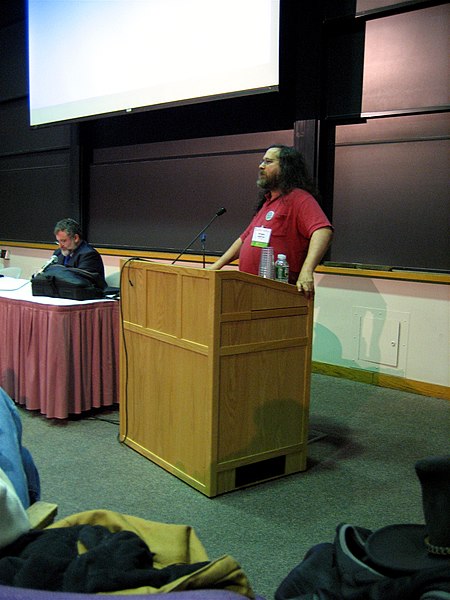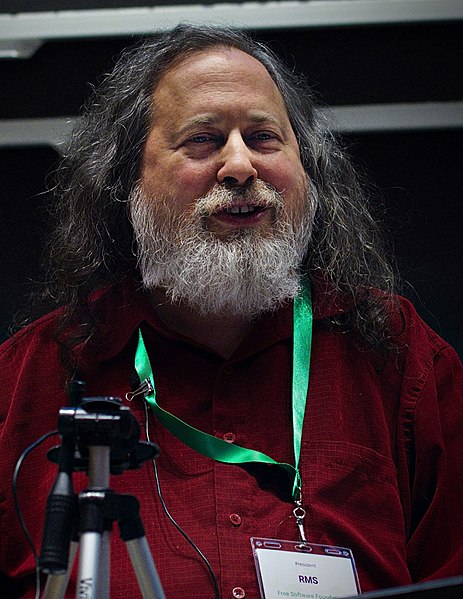GNU General Public License
The GNU General Public License is a series of widely used free software licenses, or copyleft, that guarantee end users the four freedoms to run, study, share, and modify the software. The license was the first copyleft for general use, and was originally written by Richard Stallman, the founder of the Free Software Foundation (FSF), for the GNU Project. The license grants the recipients of a computer program the rights of the Free Software Definition. The licenses in the GPL series are all copyleft licenses, which means that any derivative work must be distributed under the same or equivalent license terms. It is more restrictive than the Lesser General Public License, and even further distinct from the more widely-used permissive software licenses BSD, MIT, and Apache.
Richard Stallman at the launch of the first draft of the GNU GPLv3 at MIT, Cambridge, Massachusetts, United States. To his right is Columbia Law Professor Eben Moglen, chairman of the Software Freedom Law Center.
Printed GPL statements for consumer entertainment devices which incorporate GPL components
Richard Matthew Stallman, also known by his initials, rms, is an American free software movement activist and programmer. He campaigns for software to be distributed in such a manner that its users have the freedom to use, study, distribute, and modify that software. Software that ensures these freedoms is termed free software. Stallman launched the GNU Project, founded the Free Software Foundation (FSF) in October 1985, developed the GNU Compiler Collection and GNU Emacs, and wrote all versions of the GNU General Public License.
Stallman in 2019
Stallman in 2003 at the opening ceremony of NIXAL (a GLUG) at Netaji Subhash Engineering College, Kolkata, India
Stallman giving a speech on "Free Software and Your Freedom" at the biennale du design of Saint-Étienne (2008)
Stallman using his Lemote machine at Indian Institute of Technology Madras, Chennai






